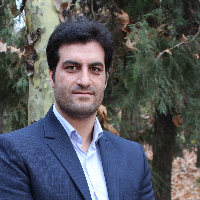Examining Student's Basic Skill Significant Difference in the Era of Globalization: Shahid Chamran University Case
Author(s):
Abstract:
Today, skills are the key element in organizational success and personal development and is considered a key factor in deployment of human resources in the market. The purpose of current study was examining students’ basic skills in global age era. This study was a descriptive survey. The statistical population was consisted of Shahid Chamran University students in the academic year 2010-11. Sampling method was stratified random sampling including 334 students in Humanities, Basic Sciences, Agriculture, Engineering and Veterinary. The research instrument was a researcher made questionnaire with a reliability of. 89. The results showed that students ‘skills at this university are about average (3.42).Computer literacy had lowest and teamwork had highest averages. There was significant difference in students’ skills from the desirable level. So that, the means of responsibility and team-working skills were significantly above average. But the means of communication, problem solving, flexibility skills, and computer literacy were less than average. In addition, the results showed that there were significant differences between male and female students in communication, responsibility, and team-working. Furthermore there were significant differences between students’ major and year of studying.
Keywords:
Language:
Persian
Published:
Qurterly Journal of Research and Planing in Higher Education, Volume:19 Issue: 4, 2014
Pages:
51 to 74
https://www.magiran.com/p1297599
سامانه نویسندگان
مقالات دیگری از این نویسنده (گان)
-
Developing and validation of recruitment model of faculty members in University of Farhangian with emphasis on upstream documents: A mixed study
Farhad Alipoor, Yones Romiani *, Maryam Yarahmadi
Qurterly Journal of Research and Planing in Higher Education, -
Developing and validating of talent Identification Model of Faculty Members at Comprehensive Universities with regional performance level (Case: university of Lorestan)
Khodayar abili, unes romiani *, javad porkarimi, saeid frahbakhsh
Iranian Society for Training and Development,


